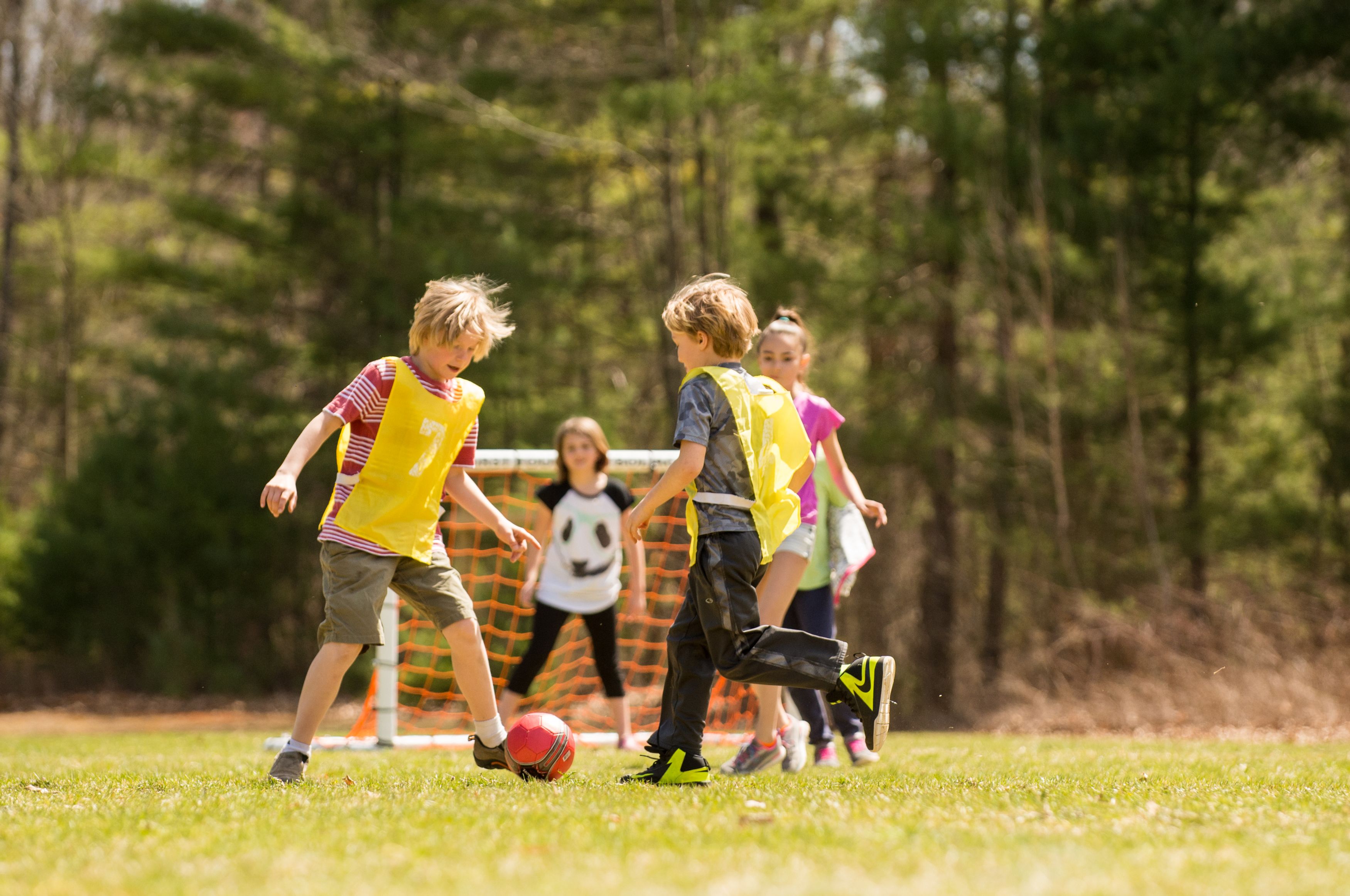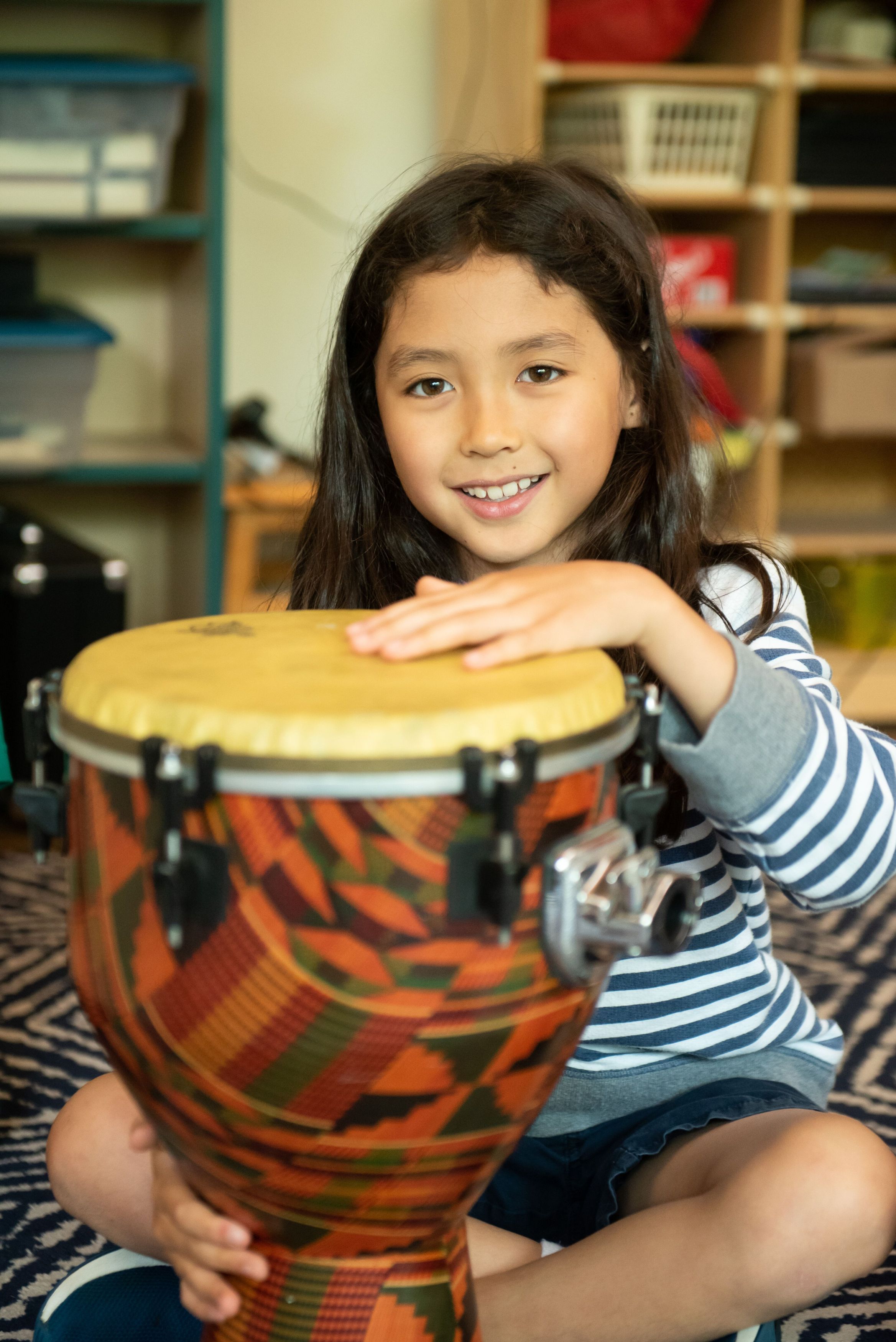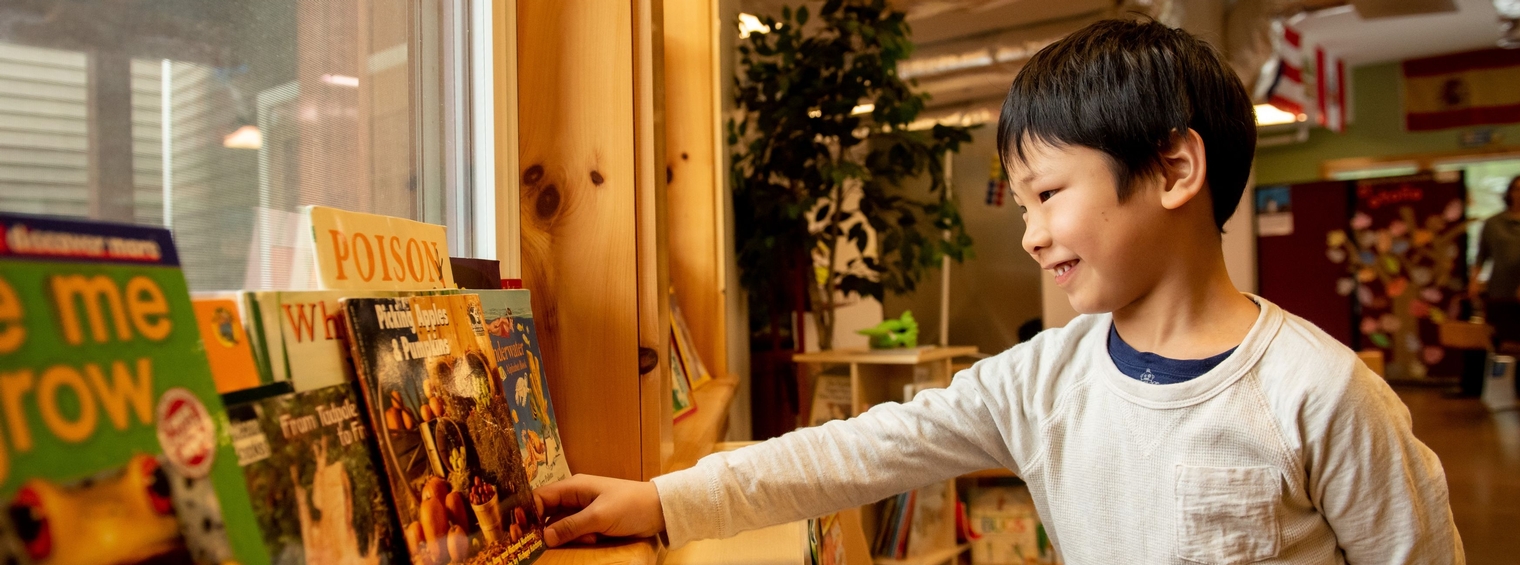

Lower School Program
Our mission and motto are the foundation of our school, the bedrock of the work that our students accomplish in their classrooms, on the playground, in Morning Meetings, in interactions with peers and adults, and beyond. Encouraged to learn the value of both independence and collaboration, students gain confidence and competence in thinking for themselves and solving problems on their own. Through the process of creativity and discovery, students learn and appreciate the benefits and joy of teamwork.
The notion of giving time to children’s growth and learning underlies our work at Saratoga Independent School. Whether in Bridges Math strong emphasis on understanding and mastery, or in Reading and Writing Workshops that give time for close reading and pride in creating well-written, polished work, our teachers understand the importance of allowing time for children to think, learn and discover.
Authentic assessment is based on students’ abilities to perform meaningful tasks they may have to do in the real world. In other words, this form of assessment determines students’ learning in a manner that goes beyond multiple choice tests and quizzes. It engages a variety of skills and measures higher levels of learning than traditional assessments. At SIS, major assessments are as authentic as possible and measure high-level learning (apply, analyze/evaluate, create).
Ongoing informal assessments, including oral and written, occur continuously throughout the school year as a means of guiding students to set goals, and self-reflect to determine if those goals have been accomplished.
Three times a year, progress reports are completed by teachers and students to measure progress based on set State and School criteria.


 Becoming a proficient writer is the companion piece to proficient reading in the language arts curriculum. Writing for self-expression, practical as well as creative, is part of daily practice. Willingness and self-confidence are emphasized at the early levels of learning to write, while the mechanics of writing are increasingly introduced as skills progress.
Becoming a proficient writer is the companion piece to proficient reading in the language arts curriculum. Writing for self-expression, practical as well as creative, is part of daily practice. Willingness and self-confidence are emphasized at the early levels of learning to write, while the mechanics of writing are increasingly introduced as skills progress. students along from concrete, quantitative performance, to a pictorial approach, to more abstract mathematical ideas/concepts to solve math problems. The math program uses formative assessment and focuses on mastery to ensure that learners work to understand skills and concepts at every stage, allowing them to move ahead to more challenging work when they are ready. SIS’s Thematic Approach guarantees that mathematical problem solving is enhanced through connections with activities in other disciplines at all levels of learning.
students along from concrete, quantitative performance, to a pictorial approach, to more abstract mathematical ideas/concepts to solve math problems. The math program uses formative assessment and focuses on mastery to ensure that learners work to understand skills and concepts at every stage, allowing them to move ahead to more challenging work when they are ready. SIS’s Thematic Approach guarantees that mathematical problem solving is enhanced through connections with activities in other disciplines at all levels of learning.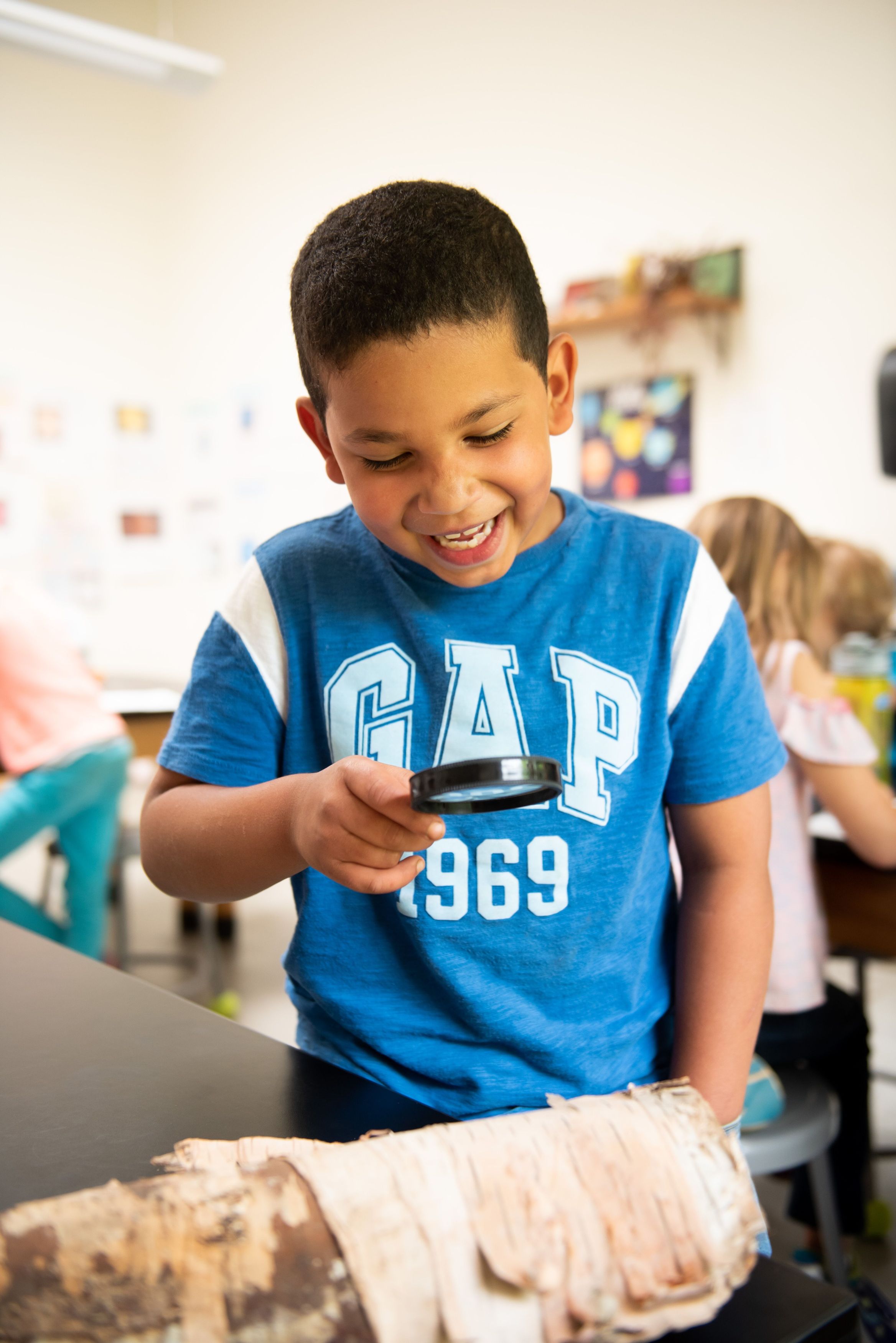 In-depth, hands-on experiences in science and technology are major components of any contemporary curriculum aiming to prepare learners for careers and participation in 21st century life. In these areas, which demand rapid and ongoing alignment to changing skills and knowledge, foundational understanding of the scientific method and of appropriate use of information technology is key. The scientific method of inquiry – posing questions, collecting observations and data, testing hypotheses, analyzing systematically, and reporting objectively – is emphasized as learners explore traditional and contemporary content of the body of science. Fostering an attitude of scientific inquiry includes encouraging and allowing learners to explore and answer, at appropriate levels of learning, their own self-initiated questions.
In-depth, hands-on experiences in science and technology are major components of any contemporary curriculum aiming to prepare learners for careers and participation in 21st century life. In these areas, which demand rapid and ongoing alignment to changing skills and knowledge, foundational understanding of the scientific method and of appropriate use of information technology is key. The scientific method of inquiry – posing questions, collecting observations and data, testing hypotheses, analyzing systematically, and reporting objectively – is emphasized as learners explore traditional and contemporary content of the body of science. Fostering an attitude of scientific inquiry includes encouraging and allowing learners to explore and answer, at appropriate levels of learning, their own self-initiated questions.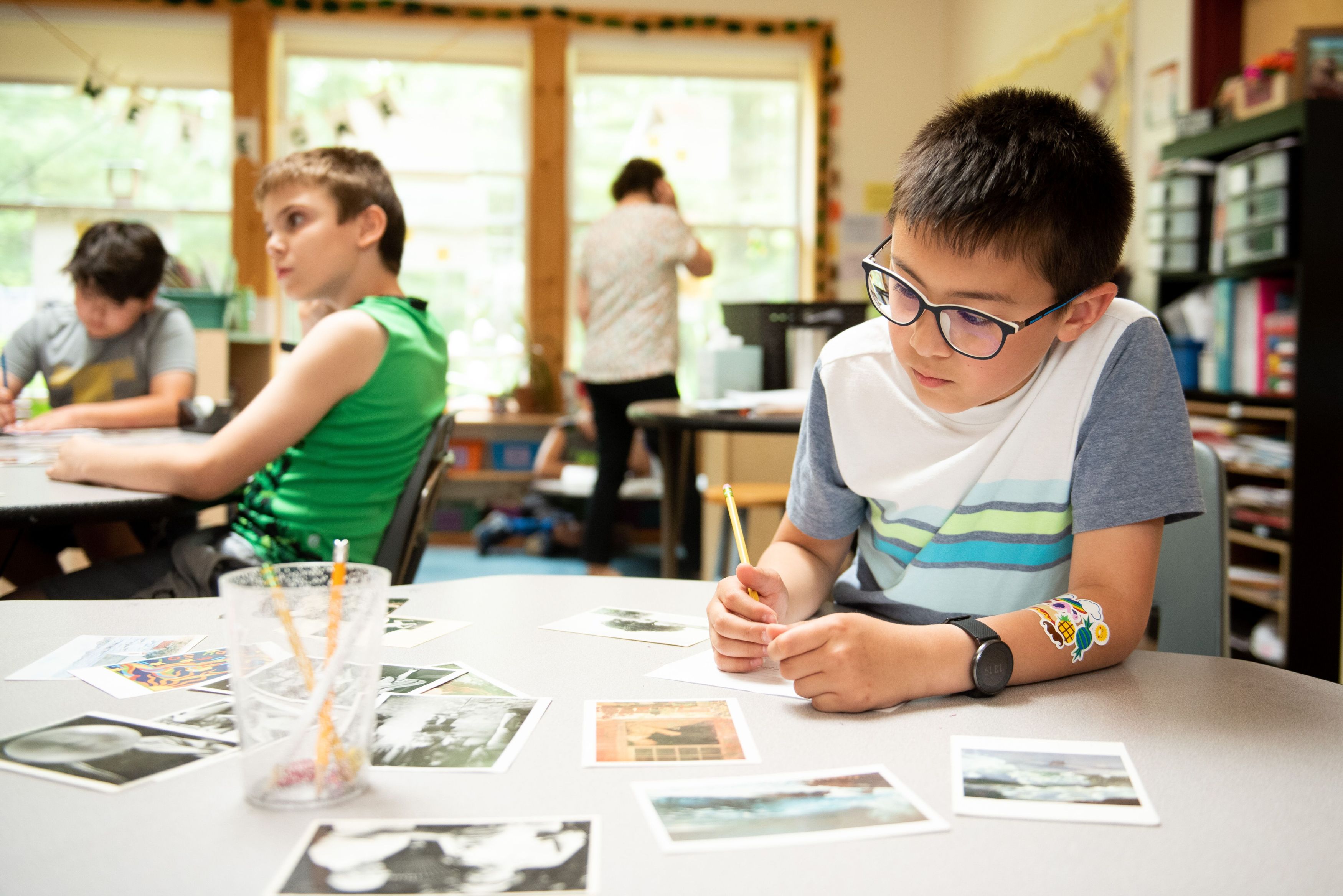
.jpg)

